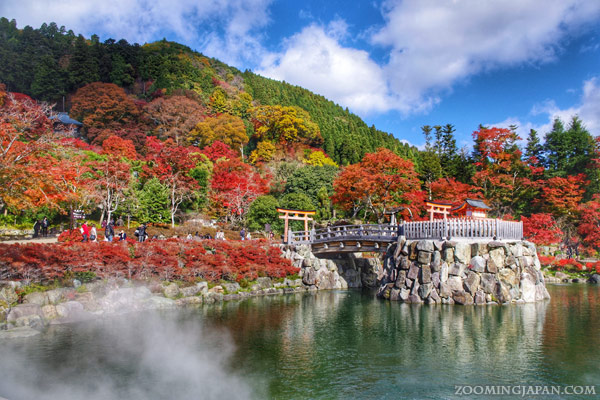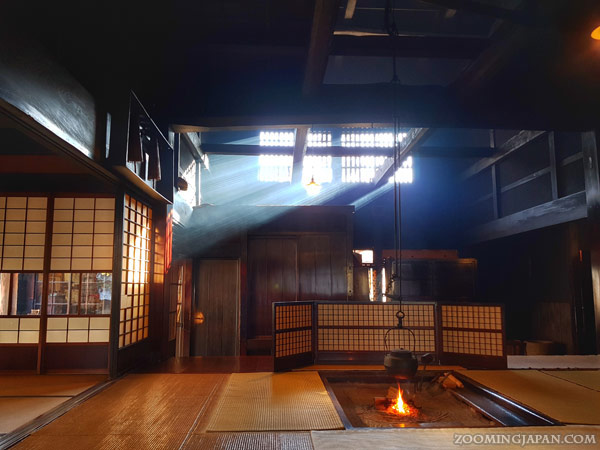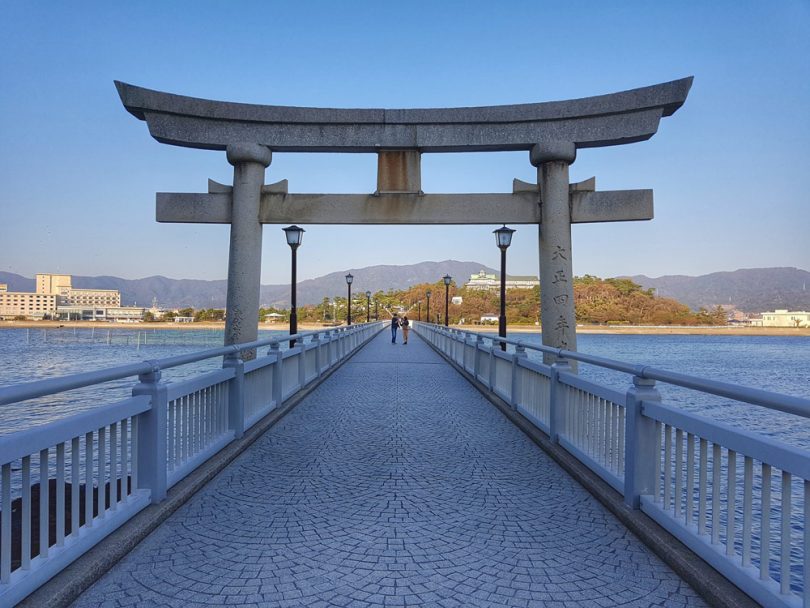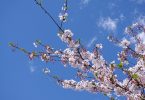Your Japan trip was cancelled due to Covid-19 and now you’re not sure what to do?
No doubt these are crazy times we’re living in.
I’ve already had my share of emergency states and chaos when I lived in Japan, e.g. when the triple disaster hit us in March 2011. Back then it was mostly a local problem. This time we’re all affected. You, me – maybe even your neighbor’s cat. And obviously, we’re not all in the exact same situation.
However, I’m pretty sure a lot of you were looking forward to your next vacation. Maybe you’ve already booked a flight, maybe you were in the middle of planning your next adventure. It doesn’t matter. Now, we’re all in the same boat. At the moment only a few lucky citizens are allowed to enter Japan. And even if you’re from one of those countries, you have to wonder whether it’s safe to travel to Japan right now.

1. Plan Your Next Japan Trip in Greater Detail
Well, try to stay positive! At least now you have way more time than you thought you would. It’s a great chance to plan your Japan trip in even greater detail.
I’m sure you’ve already considered the best travel time and you also know how to avoid peak travel season? Especially in these Covid-19 times you want to avoid crowded places as much as possible.
You should also think about how you want to travel around. If you want to avoid crowded trains during these times, you can always rent a car.
If you want to use trains after all, it depends on your budget and schedule. In case you’re on a low budget, you might want to check out the “Seishun 18 Kippu” where you travel slow, but save a lot of money. Or you can calculate if the famous “Japan Rail Pass” is an option for you.
Nowadays it’s also important to stay connected no matter where you go. You have various options. If you just need mobile internet access you might want to check out a pocket Wi-Fi service. If you also need to make phone calls and want your own Japanese telephone number Mobal is a great option.
You’ve planned a trip to Tokyo? Great, but make sure to also do some day trips from there! If you’re in the Kyoto / Osaka region, there’s so much to see that I’m sure you’ll be busy for quite a while to decide where to go. .gif)
If you struggle coming up with your own itinerary, you can also check out a few sample itineraries I’ve previously posted.
In case you’re a fan of Japanese dramas and movies, make sure to know where to find the famous shooting locations! Of course, this includes movies that are not Japanese, but were partly shot in Japan such as “The Last Samurai” or “Memoirs of a Geisha”. If you’re a cat lover like me, don’t miss these spots. And if you’re interested in castles, have a look at my castle index featuring most(!) of the castles I’ve visited thus far. Additionally, there are a lot of themed cafés, animal cafés and “animal islands” to discover.
2. Learn About Japanese Etiquette
A lot of people are nervous before visiting Japan as it’s a different culture. Maybe you were too before your Japan trip was cancelled due to Covid-19. There’s nothing to be scared of, but it’s a good idea to learn about a few things beforehand.
I’m sure you already know most of these things, but in restaurants you don’t give tips and never stick your chopsticks into a bowl of rice. Never pass your food using chopsticks.
Always take off your shoes, when you enter somebody’s home. Even in a lot of public places it’s required. Usually, there are signs that indicate it. Don’t blow your nose in public and don’t speak in a loud voice, especially in trains.
The custom of sharing omiyage (souvenirs) with your co-workers or friends is big in Japan. If you’re invited to somebody’s home, make sure to have a little gift prepared!
Even before Covid-19, but especially now it’s important to know about Japan’s mask etiquette. In case you plan to visit an onsen, make sure you learn about the proper onsen etiquette.

3. Study Some Japanese
Okay, so your Japan trip was cancelled due to Covid-19 and you’re (h)angry. You could either eat all those senbei that have been lurking in the corner of your room or you sit down and get your Japanese skills to the next level.
I admit Japanese is not the easiest language to learn, but for your trip to Japan just a few simple phrases will do.
However, if you currently have a lot of time due to the pandemic, you could take it a bit more seriously and see how far you can get before your trip. I know it’s not easy to start, but I’ve written a lengthy post about how I did it. And you don’t even have to invest any money in order to improve your Japanese skills!
4. Learn More About Japanese Culture
I assume that most of you already know a lot about Japan. However, if you’ve just recently decided to visit Japan or if you want to deepen your knowledge about Japanese culture, now would be a good time. Trust me that you will enjoy your trip even more with all the newly gained knowledge. Thank me later! ;)
No matter what your Japan itinerary looks like, I’m 100% sure you’ll come across some shrines/temples during your stay. Well, there’s a lot to know, but I’m just mentioning a few things. Let a paper strip foretell your future! These so-called “omikuji” can be purchased at temples or shrines and are quite a lot of fun. At some main tourist spots you can even purchase them in English. Make sure to get “omamori“, a lucky charm. They are unique, absolutely beautiful and you can use them for various purposes (e.g. academic success, finding love). Or simply write your wish on “ema“, a wooden plaque that you will leave at the shrine/temple.
What I like the most is collecting seals (shuin) in my temple / shrine seal book. That’s really a great way to support local temples / shrines and it makes the best and coolest souvenir. These have become quite popular in recent years.
Japan also has a lot of interesting festivals and holidays you might come across during your stay, so it’s good to learn about them beforehand. It starts with Hatsumode, the first shrine visit of the year in early January. In early February there’s “Bean Throwing Day“. Make sure to buy ehomaki (an uncut sushi roll) in the supermarket then. In early March “Hina Matsuri” is being celebrated. You might be able to see beautiful doll displays all around the country.
In late April / early May there’s an accumulation of national holidays, better known as “Golden Week“. It’s not the best time to visit Japan as it’s very crowded. In summer there are many great “matsuri” everywhere in Japan with traditional dances, parades and fireworks (example: Yukata Matsuri in Himeji). On July 7th “Tanabata” is being celebrated when your wishes could come true. In mid-November, you might see younger Japanese kids in beautiful kimono at shrines as they celebrate “Shichi-Go-San” then. If you visit in late December you’ll not only experience how Japan celebrates Christmas, but also New Year’s Eve.

5. Follow Some Good Japan Content Creators
Your Japan trip has been cancelled due to Covid-19, so it might be bitter to follow people who currently are in or writing about Japan. On the other hand, it will give you more inspiration for later!
I do have a list of Japan-related blogs and websites, although I have to admit I haven’t updated it in a long time. If you love stunning photos of not so well-known spots in Japan, I recommend Jordy Meow’s “Offbeat Japan“. If you can read German then check out Tessa’s blog “Wanderweib” with lots of useful travel information. I also enjoy the German blog “The Hangry Stories” for recipes and exploring Japan by bicycle. If you live in Austria and want to book a trip to Japan, check out my friend’s website “Japan Plus Touristik“.
Honestly, I’m barely following any Japan blogs anymore these days. I’m more into Instagram and Youtube. How about you?
Here are just a bunch of Insta accounts I follow. Feel free to check them out: tokyoandbeyond, mikaeradesu, mr_ebisu, salztokyo, the.traveling.cats
And if you’re really desperate, you can also read about my boring life like how I made it to Japan back in 2008, what obstacles I had to overcome and why I eventually decided to leave in 2015. As you’ve probably noticed I did travel back to Japan quite frequently even after leaving.
That being said my blog is – and probably will continue to be – neglected. It’s not that I don’t have anything to post about anymore. Quite the contrary. I simply lack the time. I’m currently most active on Instagram, so if you’re interested, it’s best to follow me there. I won’t ever delete this blog and whenever I have some time and feel like sitting down whipping up a blog post, I will. Kudos to you if you’re still here, reading this. After all, this blog has been around for almost 10 years now …
6. Learn About Weird Japanese Things
Japan is without a doubt an interesting country, but it’s also weird. I’m not only talking about maid cafés or underwear vending machines. They have some crazy social concepts that are unheard of in the Western world. One of these terms is “Himono Onna” (Dried Fish Woman) which refers to a young woman, usually in her late 20s or older who has given up on relationships, love and sex. There are a lot of other terms like that e.g. “Hikikomori” (shut-in nerds) or “Soushoku danshi” describing herbivore men who’re not proactive at all as they’re not really interested in finding a partner. Needless to say that dating in Japan comes with quite a few obstacles.
Then there are also funny terms such as “Ame Onna” (Rain Woman) and I certainly classified as one when I still lived in Japan. .gif)
Not to scare you, but you also should know about some creepy crawlers you might encounter during your stay and how to deal with them. These are in the “weird” category because “killer hornets” and spiders larger than your hand sound ridiculous, but they’re actually a thing ….
Staying positive is key..
Needless to say that you should take this post with a grain of salt. What are you doing during these crazy times? Has your trip actually been cancelled or were you in Japan while the pandemic started? Do you have any additional tips on what people could do if their Japan trip was cancelled due to Covid-19?









Ich möchte einmal anmerken, wie informativ dieser Blog ist. Ich erinnere mich bereits vor Jahren hier einen Beitrag über das Nutzen von Masken während Grippe/Erkältungswellen in Japan gelesen zu haben. Unter anderem wurde in dem Eintrag erklärt, dass es nicht (nur) um den eigenen Schutz vor Ansteckung sondern vor allem auch um den Schutz der anderen geht. Wäre diese Info im Sinne einer interkulturellen Austauschs in westlichen Ländern stärker verbreitet hätte man sich die monatelangen Diskussion um die Masken im Zusammenhang mit Corona sparen können. Im Westen hat man ja mittlerweile verstanden, dass es vielleicht nicht ganz so dumm ist während einer Epidemie Masken zu tragen. Ich habe sogar im Rahmen der ganzen Debatte auf einer englisch-sprachigen Internetseite einmal einen Verweis auf den Blog-Eintrag gesehen, den ich damals auch gelesen habe Da sieht man einmal was intensive Kenntnis anderer Länder für ein Potenzial hat!
Hallo Erik,
vielen Dank für den netten Kommentar.
Was die Masken angeht, so wurden sie immer schon kontrovers diskutiert – auch in Japan.
Es ist nunmal so, dass sie keinen absoluten Schutz bieten können. Im Fall von Covid-19 jedoch, der sich ja anscheinend über die sog. Aerosole verbreitet, scheinen sie doch recht viel zu bringen. Bei der ein oder anderen Krankheit dann eher wieder weniger.
Ich selbst habe in Japan auch sehr oft Masken getragen im Unterricht, meine Schüler auch – und trotzdem hab ich mir sehr oft eine Erkältung u.Ä. von meinen Schülern eingefangen. Masken dämmen ein, können aber keinen 100%igen Schutz bieten. Trotzdem hoffe ich, dass die Masken in Europa bleiben werden. Nicht als Pflicht, aber dass man nicht mehr schief angeschaut wird, wenn man in einem vollen Wartezimmer beim Arzt zur Grippezeit lieber eine Maske aufsetzt – genauso wie in überfüllten Zügen.
These are excellent tips and so useful to prepare and build up excitement for when that delayed Japan trip finally CAN happen!
Ein sehr informativer Blog! Werde öfters vorbeischauen! :-)